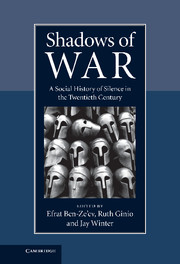Book contents
- Frontmatter
- Contents
- Notes on contributors
- Preface and acknowledgments
- Part I Framing the problem: Multi-disciplinary approaches
- Part II Europe
- 3 Breaking the silence? Memory and oblivion since the Spanish Civil War
- 4 In the ashes of disgrace: Guilt versus shame revisited
- 5 On silence, madness, and lassitude: Negotiating the past in post-war West Germany
- Part III Africa
- Part IV The Middle East
- Index
- References
3 - Breaking the silence? Memory and oblivion since the Spanish Civil War
Published online by Cambridge University Press: 04 May 2010
- Frontmatter
- Contents
- Notes on contributors
- Preface and acknowledgments
- Part I Framing the problem: Multi-disciplinary approaches
- Part II Europe
- 3 Breaking the silence? Memory and oblivion since the Spanish Civil War
- 4 In the ashes of disgrace: Guilt versus shame revisited
- 5 On silence, madness, and lassitude: Negotiating the past in post-war West Germany
- Part III Africa
- Part IV The Middle East
- Index
- References
Summary
The late rebellion need not be remembered since it is impossible it should be forgotten.
On 28 October 2007, Spain's congress of deputies voted in favour of a ‘law to recognise and broaden the rights of and support for those who suffered persecution or violence during the Civil War and dictatorship’. Universally known as the law of historical memory, the legislation was approved by the Senate on 10 December 2007 and published on 2 December as Ley 52/2007, the culmination of a much longer process of ‘recovering’ a public memory of civil war. King Juan Carlos had, for example, declared 2006 – the seventieth anniversary of the outbreak of the Civil War – to be Spain's ‘year of historical memory’. Significantly, 2006 was also the seventy-fifth anniversary of the coming to power of the Second Spanish Republic and, as the king's declaration made clear, the historical experience of democracy was the foundation for any recovery of historical memory.
In the decree, ‘over 25 years of democracy’ was treated as the stable foundation that now allowed Spaniards to address the question of historical memory. Such an assumption is validated by the scholarly literature: it has become commonplace to assert that this concern with a traumatic past attests to the robustness of consolidated democracy. Far from being fragile or transitional, Spanish democracy now has the legitimacy that allows its citizens to pursue difficult issues.
- Type
- Chapter
- Information
- Shadows of WarA Social History of Silence in the Twentieth Century, pp. 47 - 67Publisher: Cambridge University PressPrint publication year: 2010
References
- 3
- Cited by



